#perinatolog
Explore tagged Tumblr posts
Text
Sustainable Healthcare for Children: How Global Experts Are Shaping the Future

Introduction
Sustainable healthcare for children is not just a vision—it is a necessity. As global health challenges rise, ensuring accessible, equitable, and eco-friendly pediatric healthcare has become a primary focus for medical experts worldwide. At the 4th World Pediatrics, Perinatology, and Child Health Summit 2025, leading healthcare professionals, researchers, and policymakers will come together to discuss innovative solutions for creating a sustainable future for child healthcare.
What is Sustainable Healthcare for Children?
Sustainable healthcare refers to an approach that ensures long-term, high-quality healthcare for children while minimizing environmental impact and maximizing resource efficiency. It includes aspects such as:
Eco-Friendly Healthcare Infrastructure – Implementing green hospitals, reducing carbon footprints, and utilizing renewable energy sources in pediatric healthcare facilities.
Digital Transformation – Using telemedicine, AI-driven diagnostics, and electronic health records to improve access to care and reduce waste.
Preventive Healthcare & Public Health Initiatives – Promoting early interventions, vaccinations, and community-based healthcare programs.
Equitable Access to Healthcare – Ensuring that children in low-income regions receive the same standard of care as those in developed nations.
Global Experts Driving Change
At the upcoming 4th World Pediatrics Summit 2025, thought leaders and healthcare professionals will present groundbreaking research and strategies for advancing sustainable child healthcare. Some key areas of discussion include:
Sustainable Pediatric Care Models – How hospitals are adopting environmentally responsible practices while maintaining top-tier healthcare services.
Innovations in Neonatal and Perinatal Care – Cutting-edge solutions to improve the survival and health of newborns.
Integrating AI and Technology – The role of artificial intelligence in reducing medical waste and improving patient outcomes.
Global Policies for Sustainable Healthcare – How governments and healthcare organizations can collaborate to implement long-term sustainability strategies.
Why This Matters for the Future
Children represent the future, and their healthcare must be a priority. Sustainable pediatric healthcare ensures that future generations receive the medical attention they need without exhausting resources or harming the planet. By incorporating innovative solutions, reducing disparities, and fostering international collaboration, experts are paving the way for a more sustainable and healthier world for children.
Register for the 4th World Pediatrics Summit 2025
Join global experts in Dubai from October 21-23, 2025, to be part of this crucial discussion. Register now to gain insights, network with leading professionals, and contribute to shaping the future of child healthcare.
🔗https://pediatrics.utilitarianconferences.com/registration
#Pediatrics#ChildHealth#SustainableHealthcare#GlobalHealth#HealthcareInnovation#Perinatology#NeonatalCare#FutureOfMedicine#PediatricSummit2025#MedicalSustainability
0 notes
Text
Nimai Borneo - Best Maternal Fetal Medicine In Nashik
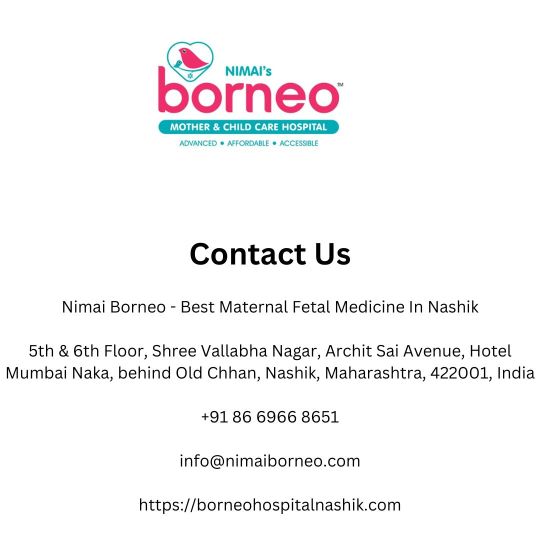
At Nimai Borneo Hospital in Nashik, we're dedicated to revolutionizing mother and child healthcare, blending compassionate patient care with cutting-edge medical technology. Our maternal-fetal medicine services stand as a testament to this commitment, offering comprehensive care for expectant mothers and their unborn babies.
Our maternal-fetal medicine specialists are committed to managing high-risk pregnancies, ensuring optimal outcomes for both mother and baby. With expertise in obstetrics, gynecology, and medical genetics, they provide personalized care and support every step of the way.
Perinatology, also known as maternal-fetal medicine, focuses on managing the health of both mother and fetus during pregnancy. At Nimai Borneo Hospital, our perinatology team offers comprehensive prenatal screening, diagnosis, and treatment for a wide range of maternal and fetal conditions.
Our team of fetal medicine specialists includes highly trained physicians with expertise in diagnosing and treating fetal anomalies and complications. With state-of-the-art facilities and advanced imaging technology, we ensure accurate diagnosis and personalized care for every patient.
Prenatal care is essential for monitoring the health of both mother and baby throughout pregnancy. At Nimai Borneo Hospital, our prenatal medicine services include routine check-ups, screenings, and diagnostic tests to ensure a healthy pregnancy and delivery.
Address : 5th & 6th Floor, Shree Vallabha Nagar, Archit Sai Avenue, Hotel Mumbai Naka, behind Old Chhan, Nashik, Maharashtra 422001
Phone : 8669668651
Business Email : [email protected]
Facebook
Youtube
Instagram
Linkedin
Twitter

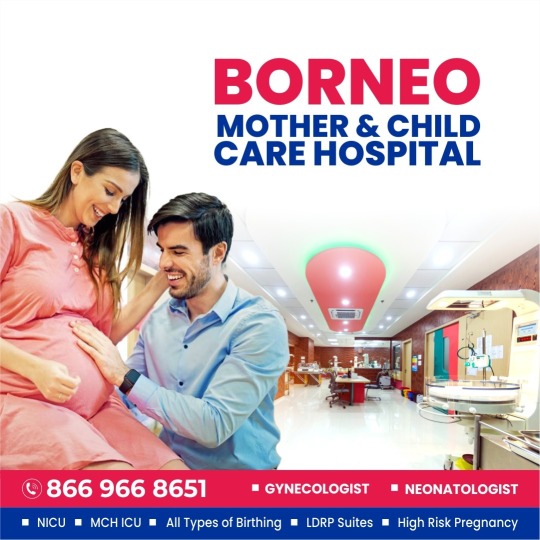

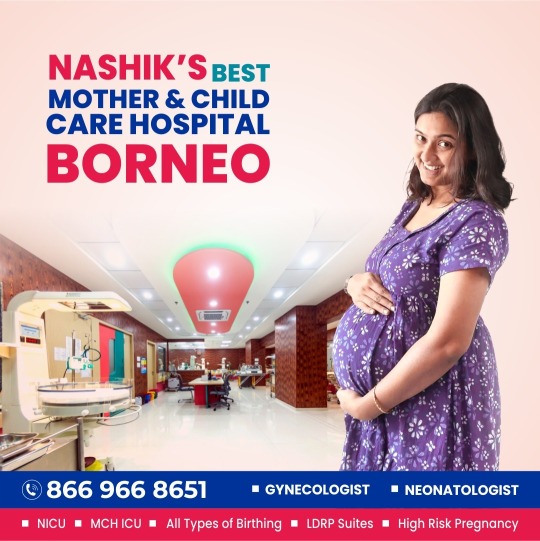
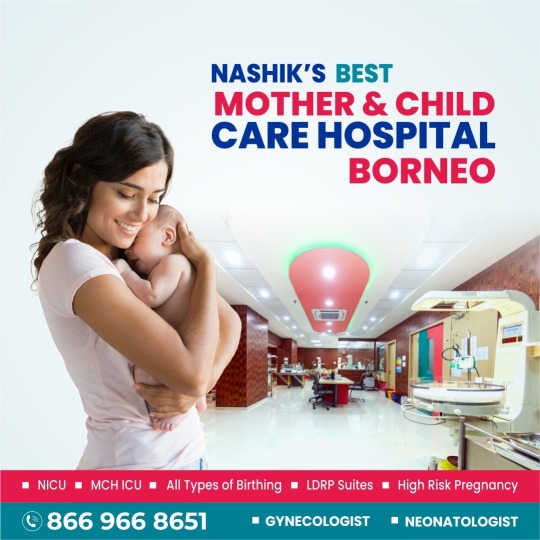
#Maternal Fetal Medicine in Nashik#Perinatology in Nashik#Fetal medicine specialist in Nashik#Fetal Care in Nashik#Prenatal medicine in Nashik
1 note
·
View note
Text
Nimai Borneo - Best Maternal Fetal Medicine In Thane
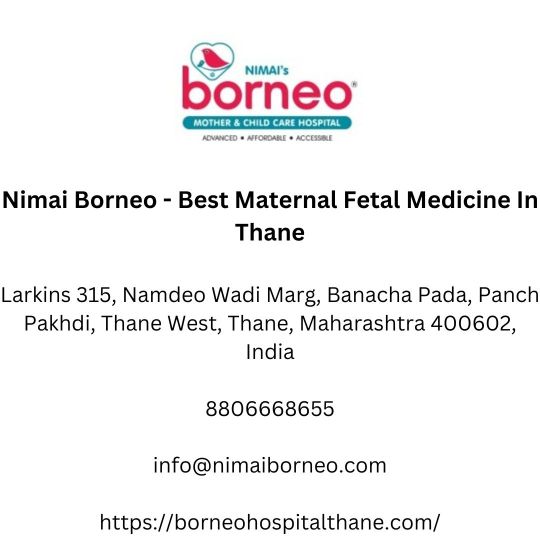
At Nimai Borneo Hospital in Thane, we're dedicated to revolutionizing mother and child healthcare, blending compassionate patient care with cutting-edge medical technology. Our maternal-fetal medicine services stand as a testament to this commitment, offering comprehensive care for expectant mothers and their unborn babies.
Our maternal-fetal medicine specialists are committed to managing high-risk pregnancies, ensuring optimal outcomes for both mother and baby. With expertise in obstetrics, gynecology, and medical genetics, they provide personalized care and support every step of the way.
Perinatology, also known as maternal-fetal medicine, focuses on managing the health of both mother and fetus during pregnancy. At Nimai Borneo Hospital, our perinatology team offers comprehensive prenatal screening, diagnosis, and treatment for a wide range of maternal and fetal conditions.
Our team of fetal medicine specialists includes highly trained physicians with expertise in diagnosing and treating fetal anomalies and complications. With state-of-the-art facilities and advanced imaging technology, we ensure accurate diagnosis and personalized care for every patient.
Prenatal care is essential for monitoring the health of both mother and baby throughout pregnancy. At Nimai Borneo Hospital, our prenatal medicine services include routine check-ups, screenings, and diagnostic tests to ensure a healthy pregnancy and delivery.
Contact Us
Nimai Borneo - Best Maternal Fetal Medicine In Thane
Larkins 315, Namdeo Wadi Marg, Banacha Pada, Panch Pakhdi, Thane West, Thane, Maharashtra 400602, India
8806668655
Find Us On Social Media
Website
Facebook
Youtube
Instagram
Linkedin
Twitter
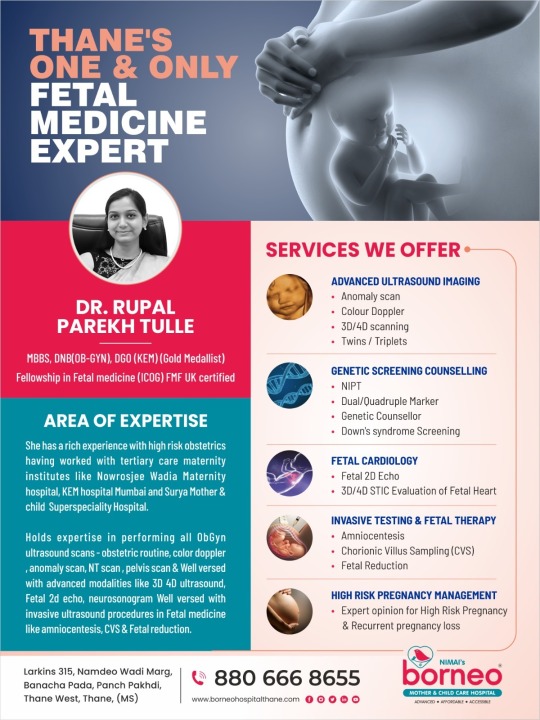
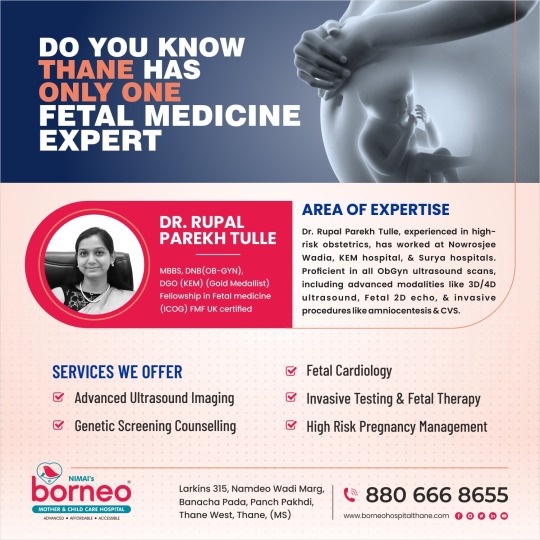
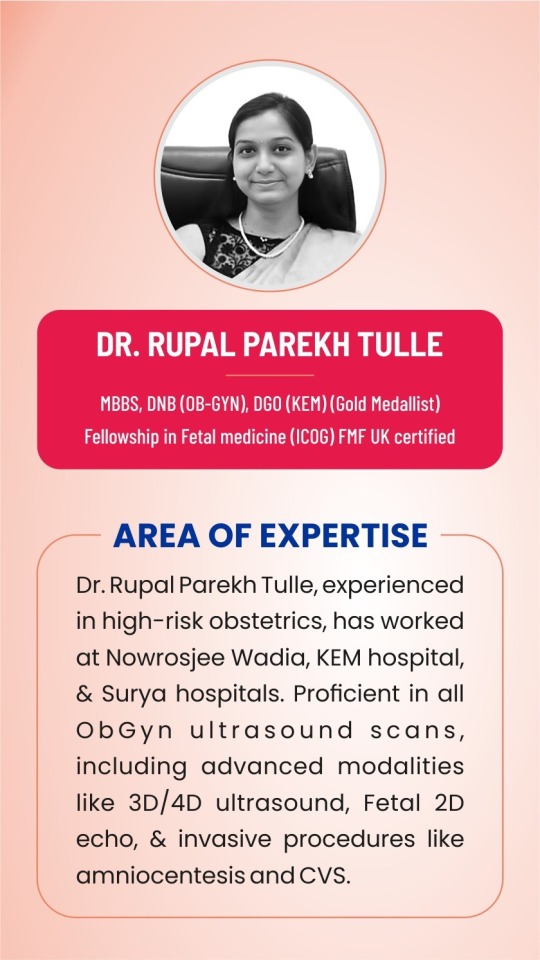
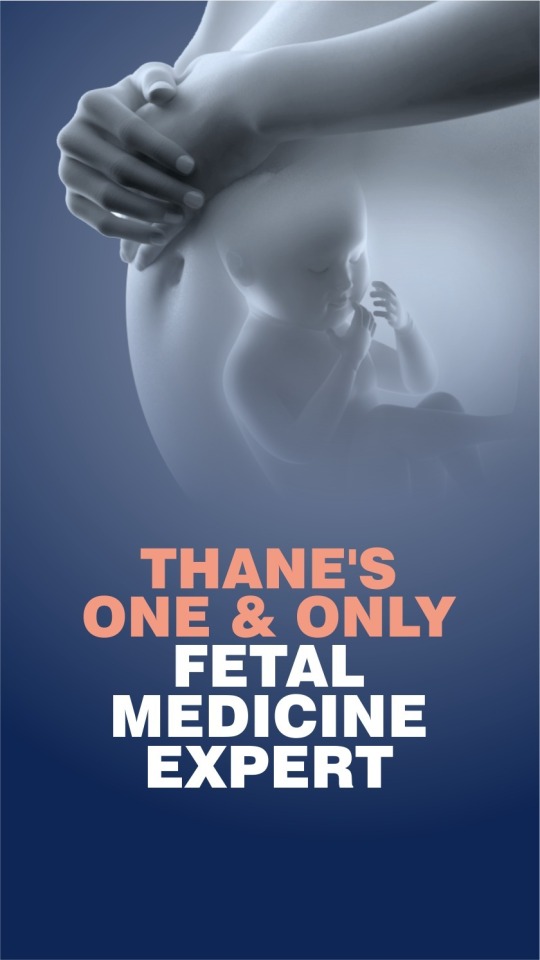
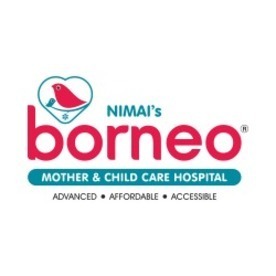
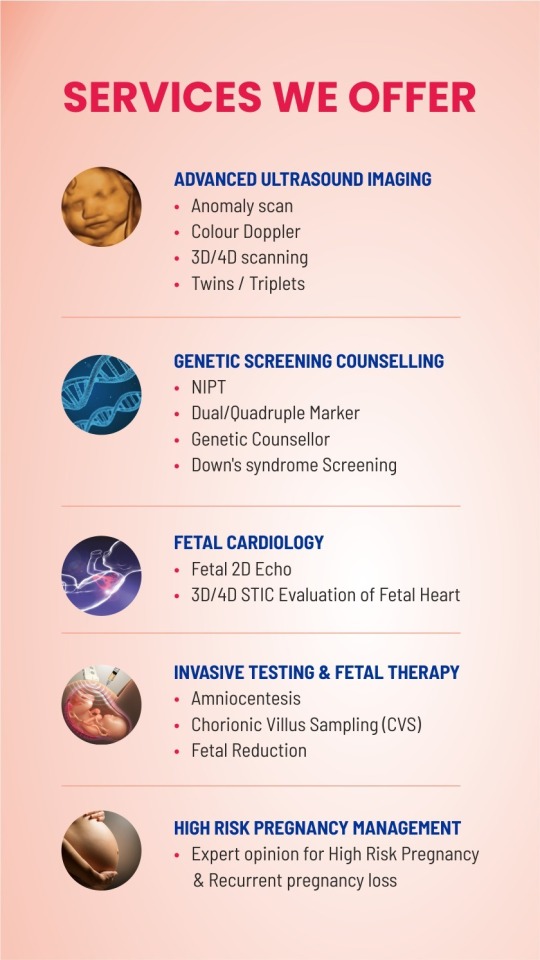
#Maternal Fetal Medicine in Thane#Perinatology in Thane#Fetal medicine specialist in Thane#Fetal Care in Thane
1 note
·
View note
Text
Nimai Borneo - Best Maternal Fetal Medicine In Thane

At Nimai Borneo Hospital in Thane, we're dedicated to revolutionizing mother and child healthcare, blending compassionate patient care with cutting-edge medical technology. Our maternal-fetal medicine services stand as a testament to this commitment, offering comprehensive care for expectant mothers and their unborn babies. Our maternal-fetal medicine specialists are committed to managing high-risk pregnancies, ensuring optimal outcomes for both mother and baby. With expertise in obstetrics, gynecology, and medical genetics, they provide personalized care and support every step of the way. Perinatology, also known as maternal-fetal medicine, focuses on managing the health of both mother and fetus during pregnancy. At Nimai Borneo Hospital, our perinatology team offers comprehensive prenatal screening, diagnosis, and treatment for a wide range of maternal and fetal conditions. Our team of fetal medicine specialists includes highly trained physicians with expertise in diagnosing and treating fetal anomalies and complications. With state-of-the-art facilities and advanced imaging technology, we ensure accurate diagnosis and personalized care for every patient. Prenatal care is essential for monitoring the health of both mother and baby throughout pregnancy. At Nimai Borneo Hospital, our prenatal medicine services include routine check-ups, screenings, and diagnostic tests to ensure a healthy pregnancy and delivery.
If you are looking for maternal fetal medicine in Thane then Nimai Borneo - Best Maternal Fetal Medicine In Thane is the best choice for you.
Contact Us
Larkins 315, Namdeo Wadi Marg, Banacha Pada, Panch Pakhdi, Thane West, Thane, Maharashtra 400602, India
8806668655
Website
Facebook
Youtube
Instagram
Linkedin
Twitter
Connect With Us
https://independent.academia.edu/NimaiBorneoBestMaternalFetalMedicineInThane
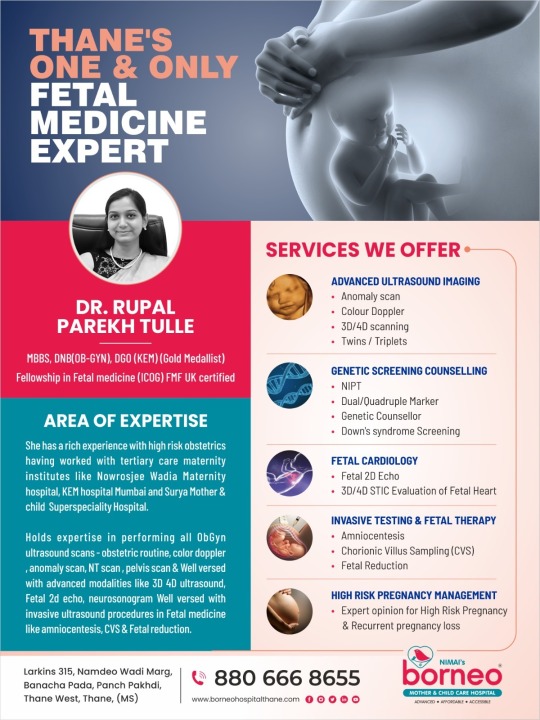



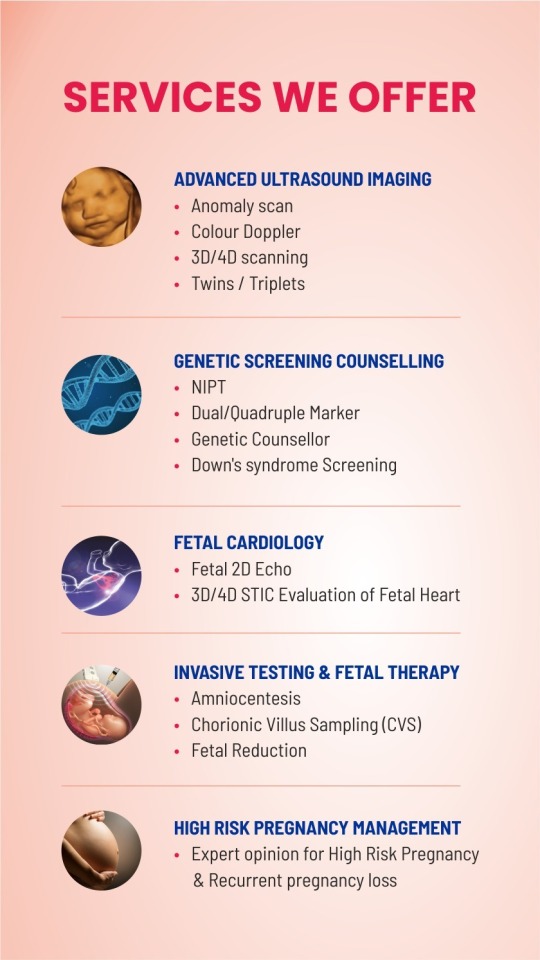
#Maternal Fetal Medicine in Thane#Perinatology in Thane#Fetal medicine specialist in Thane#Fetal Care in Thane#Prenatal medicine in Thane#Fetal Therapy in Thane
1 note
·
View note
Text
Paediatrics Courses: Complete Guide

Introduction to Paediatrics
Paediatrics is a specialized branch of medicine focused on the health, development, and diseases of infants, children, and adolescents. It covers preventive healthcare, diagnosis, and treatment of various childhood illnesses. Given the importance of child health, paediatricians play a crucial role in ensuring the well-being of younger populations.
Importance of Paediatrics Courses
With the increasing need for specialized healthcare for children, paediatrics courses provide aspiring healthcare professionals with the necessary knowledge and skills to diagnose, treat, and manage childhood illnesses. These courses train individuals to become paediatricians, paediatric nurses, neonatologists, and child healthcare specialists.
Types of Paediatrics Courses
Paediatrics courses are available at various levels, from diploma programs to doctoral degrees. Below is a detailed classification of paediatrics courses:
1. Certificate Courses in Paediatrics
These short-term courses are designed for healthcare professionals seeking basic training in paediatrics. They generally last from a few months to a year and help enhance clinical skills.
Certificate in Paediatric Nursing
Certificate in Child Health (CCH)
Certificate in Neonatal Care
Certificate in Paediatric Emergency Medicine
2. Diploma Courses in Paediatrics
Diploma programs provide foundational and advanced knowledge in paediatrics, enabling individuals to work in hospitals, clinics, and healthcare facilities. These courses typically last 1-2 years.
Diploma in Child Health (DCH)
Diploma in Paediatrics and Child Health
Diploma in Neonatal Care
Diploma in Paediatric Nursing
3. Undergraduate Courses in Paediatrics
Undergraduate courses in paediatrics focus on the fundamental principles of paediatric medicine, preparing students for clinical practice. These courses typically last 3-5 years.
Bachelor of Medicine and Bachelor of Surgery (MBBS) with Paediatrics specialization
Bachelor of Science (B.Sc.) in Paediatric Nursing
B.Sc. in Child Development and Healthcare
4. Postgraduate Courses in Paediatrics
Postgraduate courses in paediatrics provide specialized training for medical professionals who wish to focus on child health. These programs typically last 2-3 years.
Doctor of Medicine (MD) in Paediatrics
Master of Science (M.Sc.) in Paediatric Nursing
Master of Paediatric Emergency Medicine
Master of Clinical Paediatrics
5. Doctoral Programs in Paediatrics
Doctoral programs in paediatrics are research-focused, designed for those who wish to contribute to the field through academic research and clinical advancements.
Doctor of Philosophy (Ph.D.) in Paediatrics
Ph.D. in Neonatal and Child Health
Doctorate in Paediatric Medicine
Eligibility Criteria for Paediatrics Courses
The eligibility requirements for paediatrics courses vary based on the level of study:
Certificate and Diploma Courses: A high school diploma or relevant experience in healthcare is required.
Undergraduate Courses: Candidates must have completed 10+2 education with a science background, including Biology, Physics, and Chemistry.
Postgraduate Courses: A bachelor's degree in medicine, nursing, or a related field is required.
Doctoral Programs: A master’s degree in paediatrics or related medical sciences is necessary.
Subjects Covered in Paediatrics Courses
Paediatrics courses cover a wide range of subjects to equip students with comprehensive medical knowledge and practical experience. Key subjects include:
Human Anatomy and Physiology
Paediatric Pathophysiology
Neonatology and Perinatology
Paediatric Infectious Diseases
Paediatric Cardiology
Growth and Development in Children
Emergency and Critical Care in Paediatrics
Immunization and Preventive Paediatrics
Clinical Paediatrics and Patient Care
Career Opportunities in Paediatrics
Graduates of paediatrics courses have diverse career opportunities in hospitals, clinics, research institutions, and academic settings. Common career options include:
Paediatrician: A medical doctor specializing in children's healthcare and treatment.
Neonatologist: A specialist in newborn and premature baby care.
Paediatric Nurse: A nurse specializing in the care of infants and children.
Child Development Specialist: A professional focusing on the physical and cognitive development of children.
Paediatric Emergency Physician: A doctor managing acute and critical paediatric conditions.
Paediatric Researcher: A scientist conducting research on childhood diseases and treatments.
Academic and Teaching Positions: Teaching paediatric medicine and nursing at medical schools and universities.
Top Institutions Offering Paediatrics Courses
Many reputed institutions around the world offer specialized paediatrics programs. Some of the top institutions include:
Harvard Medical School (USA)
Johns Hopkins University (USA)
University of Oxford (UK)
Stanford University (USA)
All India Institute of Medical Sciences (AIIMS, India)
Christian Medical College (CMC, India)
University of Toronto (Canada)
Royal College of Paediatrics and Child Health (UK)
Future of Paediatrics
The field of paediatrics is continuously evolving with advancements in medical research and technology. Emerging trends include personalized paediatric medicine, the use of artificial intelligence in paediatric diagnostics, and improved neonatal care techniques. The demand for paediatric healthcare professionals is expected to grow, making it an excellent career choice for aspiring medical professionals.
Conclusion
Paediatrics is a rewarding and impactful field dedicated to the health and well-being of children. With a wide range of courses available, individuals can pursue careers as paediatricians, paediatric nurses, and child health specialists. Whether you aim to work in clinical practice, research, or education, paediatrics courses provide the essential knowledge and skills to succeed in this vital medical field.
2 notes
·
View notes
Text
Infertility Specialist in Bhubaneswar Dr. Rabi Narayan Satapathy

Dr. Rabi Narayan Satapathy is a highly experienced gynecologist and infertility specialist based in Bhubaneswar, Odisha, with over 21 years of experience in clinical and surgical gynecology.
Qualifications and Memberships:
Degrees: MBBS, MD (Obstetrics & Gynecology), LLB, MBA (Hospital Management)
Fellowships: FICOG (Fellow of Indian College of Obstetricians & Gynaecologists), FICMCH (Fellow of Indian College of Maternal and Child Health)
Professional Memberships:
Fellow Member of the Indian College of Obstetricians & Gynaecologists (ICOG)
Patron Member of The PCOS Society of India
Life Member of the Federation of Gynaecologists and Obstetrician Societies of India (FOGSI)
Life Member of the Indian Association of Gynaecological Endoscopists (IAGE)
Life Member of the Indian Fertility Society (IFS)
Life Member of the Indian Society of Assisted Reproduction (ISAR)
Life Member of the Indian Society of Perinatology and Reproductive Biology (ISOPARB)
Life Member of the Indian Menopause Society (IMS)
Life Member of the Association of Gynecological Oncologist of India (AGOI)
Life Member of the Indian Medical Association (IMA)
Life Member of the All India Association for Advancing Research in Obesity (AIAARO)
Life Member of the Association of Gynaecologists of Odisha (AOGO)
Services Offered:
Dr. Satapathy provides a comprehensive range of services, including:
Gynecology: Treatment for fibroids, abnormal uterine bleeding, ovarian cysts, irregular menstruation, hirsutism, menorrhagia, and gynecological cancers.
Infertility: Specialized care for both female and male infertility issues.
PCOD/PCOS: Management of polycystic ovarian disease/syndrome.
Pregnancy Care: Comprehensive prenatal and postnatal care.
Sexual Dysfunction: Addressing issues such as intimacy problems, sexually transmitted infections, male impotence, erectile dysfunction, dyspareunia (pain during sex), and ejaculatory dysfunction.
Surgical Procedures: Expertise in laparoscopy and hysteroscopy for various gynecological conditions.
Clinic Location:
Dr. Satapathy practices at Ashu Skin Care, located near IDBI Bank on Biju Pattnaik College Road in Jayadev Vihar, Bhubaneswar, Odisha 751013.
Contact Information:
Phone: +91 90900 88000
Email: [email protected]
For more information or to book an appointment, visit Dr. Satapathy's official website: https://www.drrabi.com/gynecology_Infertility.php
#infertility specialist doctor in bhubaneswar#best gynecologist in bhubaneswar#best gynecology endoscopic surgeon in bhubaneswar#best gynecologist for treatment of young girls#museums#obstetrician doctor in bhubaneswar#hymenoplasty clinic in bhubaneswar#best gynecologist in odisha
2 notes
·
View notes
Note
Hi, you don’t have to answer this ask at all if it strikes a nerve or bothers you in any way! I was recently diagnosed with endometriosis and PCOS, on top of five separate autoimmune diseases as well as gastroparesis and dysautonomia. My doctors all agree it would be extremely dangerous for me and the baby to get pregnant (if i can carry to term at all) and I was wondering just. Do you have any advice on grief? I know how different the situations are but you’re the only person I know who is disabled and been pregnant. It just really really sucks
This is my biggest fear when I get a new perinatology consult. That’s kinda why I’ve been avoiding going to a new perinatologist for a pre-conception consult (not that we’re in a financially viable situation for that at the moment anyways). I am not dealing well with the idea that I may be told that it’s not safe for me to have another child, but I think it’s important that you hear that you’re not alone.
Allow yourself to feel everything. I have had to learn not to stifle my grief over the course of several losses I’ve experienced. So many good people want to have and raise children and being told you can’t safely do that biologically is a huge blow and I feel like a lot of people willingly excuse it away as a backhanded “good thing” because we’re profoundly disabled.
It really really does fucking suck and I’m grieving with you. I wish I had better advice, but I’m going through a lot of disability grief (amongst other things) too. I also obviously can directly empathize because I have PCOS, Hashimoto’s, gastroparesis and dysautonomia.
5 notes
·
View notes
Text
Meet Dr. S R Raajam Murali – Leading Fertility Specialist in Hanumanthanagar, Bangalore
Transforming Fertility Care with Expertise and Compassion
When it comes to fertility treatments, expertise and experience play a crucial role in ensuring successful outcomes. Dr. S R Raajam Murali, MBBS, MD FIRM, is a renowned Senior Fertility Consultant based in Hanumanthanagar, Bangalore, bringing years of expertise in reproductive medicine and assisted reproductive technologies (ART).
Her extensive knowledge, backed by pioneering research in Gestational Trophoblastic Diseases, makes her one of the most sought-after fertility specialists in Bangalore. Her commitment to patient-centric care and cutting-edge treatment options has helped countless couples achieve their dream of parenthood.
Expertise in Advanced Reproductive Medicine
Dr. S R Raajam Murali has a strong academic background and a deep understanding of reproductive medicine. She has been at the forefront of several breakthrough studies in fertility treatments, covering topics such as:
Gestational Trophoblastic Diseases – Specialized research on rare pregnancy-related conditions.
Intrauterine Insemination (IUI) Timing – Studies on the ideal time for IUI to enhance conception rates.
In Vitro Maturation (IVM) – Innovations in ovarian stimulation and egg maturation for enhanced ART success.
Ovarian Stimulation Protocols – Optimizing fertility treatments to improve patient outcomes.
Her research has been presented at prestigious platforms like AICOG and FOGSI, earning her recognition among peers and professionals in reproductive medicine.
A Passion for Research and Innovation
Dr. S R Raajam Murali has made significant contributions to medical literature, with publications in leading journals such as Perinatology – Journal of Perinatal and Neonatal Care and Minerva Ginecol. Her evidence-based approach ensures that patients receive the latest advancements in fertility treatments, maximizing their chances of success.
Additionally, she has undergone Good Clinical Practice (GCP) training, ensuring the highest standards in patient safety, ethical care, and clinical research.
Comprehensive Fertility Treatments in Hanumanthanagar, Bangalore
Dr. S R Raajam Murali specializes in a wide range of assisted reproductive technologies (ART) and fertility treatments, including:
IVF (In Vitro Fertilization) – Advanced treatment for couples facing infertility challenges.
IUI (Intrauterine Insemination) – A minimally invasive procedure to increase pregnancy chances.
Ovulation Induction & Monitoring – Personalized treatment plans for women with ovulatory disorders.
PCOS & Endometriosis Treatment – Comprehensive care for conditions affecting fertility.
Egg Freezing & Fertility Preservation – Options for women planning future pregnancies.
Male Infertility Treatments – Advanced diagnostics and therapies for male reproductive health.
Recurrent Pregnancy Loss Management – Investigating and treating repeated miscarriages.
Why Choose Dr. S R Raajam Murali for Fertility Treatment?
Expertise & Experience – Years of clinical practice with a focus on personalized fertility care.
Cutting-Edge Research – Published author in reputed medical journals.
Advanced ART Techniques – Specialization in IVM, ovarian stimulation, and IUI timing.
Holistic Approach – Combines scientific advancements with patient-centric treatment plans.
Convenient Location – Easily accessible fertility care in Hanumanthanagar, Bangalore.
0 notes
Text
For the people in the intersection of Japanese majors and neonatologists, a really fun watch!
1 note
·
View note
Text
Deadline Alert! Register Now & Save on the 4th World Pediatrics Summit

Time is running out! The early bird registration deadline for the 4th World Pediatrics, Perinatology, and Child Health Summit is here, and today is your last chance to secure your spot at a discounted rate. If you are a pediatrician, neonatologist, child healthcare professional, or researcher, this is the event you won’t want to miss!
Why Attend the 4th World Pediatrics Summit?
Scheduled to take place on October 21-23, 2025, in Dubai, UAE, this prestigious summit will bring together global experts in pediatrics, perinatology, neonatology, and child health. Attendees will have the opportunity to:
Engage with world-class speakers discussing groundbreaking research and innovations.
Participate in interactive sessions, workshops, and panel discussions on the latest advancements in pediatric care.
Network with leading professionals, researchers, and policymakers shaping the future of child healthcare.
Showcase research and gain international recognition through poster and oral presentations.
Explore Dubai, a city renowned for its innovation, hospitality, and cultural experiences.
Secure Your Spot Before Prices Increase!
By registering before the early bird deadline, you will enjoy significant savings on your registration fees. After today, prices will increase, so don’t miss out on this opportunity to attend at a lower cost.
How to Register
Registering is quick and easy! Visit our official website, complete the online registration form, and finalize your payment to secure your place at this landmark event.
Register here: https://pediatrics.utilitarianconferences.com/registration
Don’t Wait—Act Now!
The early bird registration window closes today! Take advantage of this exclusive offer before prices go up. Be part of the conversation that shapes the future of pediatrics and child healthcare.
Register Now and Join Us in Dubai!
#PediatricsSummit#ChildHealth#Neonatology#PediatricsConference#HealthcareEvent#MedicalConference#EarlyBirdDiscount#RegisterNow#GlobalHealthcare#Dubai2025#Perinatology#PediatricResearch#MedicalProfessionals#HealthcareInnovation#SaveTheDate
0 notes
Text
Fetal Medicine Practices: Ensuring Healthy Outcomes for Mother and Child
Fetal medicine, also known as perinatology, is a specialized branch of medicine focused on the health and development of the fetus during pregnancy. It combines high-tech imaging, diagnostic tools, and advanced treatments to monitor and address any issues that might arise during pregnancy, ensuring the best possible outcomes for both mother and child. As technology continues to advance, so does the quality of care provided by fetal medicine specialists, helping to reduce risks and complications.
When it comes to choosing the best care for you and your baby, the right fetal medicine center can make all the difference. In Jaipur, several leading best fetal medicine centers In Jaipur,are committed to providing cutting-edge care, making it an excellent location for expectant mothers looking for the best medical support during pregnancy.
What is Fetal Medicine?

Fetal medicine is an area of obstetrics that deals with the detection, prevention, and management of fetal disorders or complications during pregnancy. This field has evolved significantly over the past few decades, offering better outcomes for both mothers and babies. Through the use of advanced technologies such as high-resolution ultrasound, amniocentesis, and non-invasive prenatal testing (NIPT), fetal medicine practitioners can detect potential issues early on and manage them effectively.
Fetal medicine specialists are highly trained to interpret complex diagnostic results and create personalized treatment plans, focusing on minimizing risks and maximizing health for both the mother and the fetus. Conditions such as fetal growth restriction, congenital abnormalities, preterm labor, and gestational diabetes can be monitored and managed effectively under the guidance of these specialists.
Best Fetal Medicine Centre in Jaipur
If you’re looking for the best fetal medicine care in Jaipur, several renowned centers offer world-class services. These centers focus on a comprehensive approach to maternal and fetal health, ensuring both the mother and child receive the attention they need throughout the pregnancy.
One of the best fetal medicine centers in Jaipur is Jaipur Fetal Care Centre. Known for its cutting-edge diagnostic technologies and highly skilled specialists, it provides a range of services including fetal ultrasound, amniocentesis, and advanced screening tests. The center’s team is dedicated to monitoring high-risk pregnancies, offering continuous support, and using the latest advancements in fetal medicine to ensure the best possible care.
Another top center is Garg Hospital & Research Centre, where fetal medicine experts work closely with expectant mothers to identify any potential risks and provide early interventions if necessary. They offer comprehensive prenatal care that includes detailed monitoring of the fetus' growth and well-being, ensuring that any concerns are addressed promptly.
Key Fetal Medicine Practices
Early Detection of Fetal Abnormalities One of the primary goals of fetal medicine is the early detection of any abnormalities or complications. Through advanced diagnostic techniques like 3D/4D ultrasound and fetal MRI, specialists can spot issues that might otherwise go unnoticed. Early intervention can make all the difference in managing conditions such as heart defects, chromosomal abnormalities, and other genetic disorders.
Management of High-Risk Pregnancies Certain pregnancies are considered high-risk, requiring more intensive monitoring and care. Women with a history of miscarriage, preterm labor, or chronic conditions such as diabetes or hypertension, often benefit from the expertise of fetal medicine specialists. These experts work to manage complications and prevent adverse outcomes by tailoring care to each individual's unique needs.
Fetal Monitoring and Growth Assessment Fetal growth restriction (FGR) can sometimes occur, where the fetus does not grow as expected. Regular monitoring and growth assessments ensure that any signs of FGR are detected early, giving specialists the opportunity to intervene if necessary. This can include early delivery or other treatments to support the baby’s growth.
Genetic Screening and Counseling Genetic screening plays a crucial role in prenatal care. Tests like NIPT and amniocentesis can detect genetic disorders, such as Down syndrome, with high accuracy. In addition to testing, fetal medicine specialists provide counseling to help parents understand the results and make informed decisions regarding their pregnancy.
Invasive Procedures and Treatments While most fetal medicine treatments are non-invasive, some cases require more invasive interventions such as amniocentesis or chorionic villus sampling (CVS). These procedures help in diagnosing certain conditions by extracting a sample of amniotic fluid or tissue from the placenta for testing. These tests are done under the careful supervision of experts to minimize any risks.
Conclusion
Fetal medicine is a crucial part of ensuring healthy pregnancy outcomes, especially when dealing with high-risk pregnancies or detecting potential complications early on. the best fetal medicine centers In Jaipur, offer advanced technology, expert care, and a personalized approach to ensure both the mother’s and child’s well-being. Whether it’s routine monitoring, early screening, or complex treatments, these centers are equipped to provide the highest level of care, making them the go-to choice for expectant mothers in need of expert fetal care.
Choosing the best fetal medicine center ensures peace of mind throughout the pregnancy journey, helping to address concerns and safeguard the health of both the mother and her baby.
0 notes
Text
The role of Specialized Care in High-Risk Pregnancies

Introduction:-
Pregnancy is a term that is basically used to describe the specific period when the fetus develops inside a woman’s womb or uterus. Pregnancy can be a transformative experience, but the main problem comes when a complication arises in pregnancy, the transformative experience can suddenly change into a high-risk situation that requires specialized care.
High-risk pregnancies are often defined as, those in which both mother and fetus are at high risk for complications it mostly tends to affect the health of pregnancy, labour, or delivery. Specialized care is very important during these high-risk situations, to improve the overall outcome, prevent further complications, and ensure that both mother and baby remain as healthy as possible. A high-risk pregnancy specialist in Siliguri mainly focuses on managing pregnancies that tend to have the risk of complications, either from the mother, the baby, or both.
1. Understanding High-Risk Pregnancy
Understanding the factors related to high-risk pregnancy is very important to prevent it on time, the common factors that mainly cause issues during pregnancy are:-
Maternal Health Conditions: - Health conditions like diabetes, hypertension, heart disease, or autoimmune disorders can cause issues during your pregnancy.
Age-related risks:- Age-related risks can arise in women who tend to be more than 35, or mothers under 17
Multiple Pregnancies:-Multiple pregnancy issues can arise in women with twins, triplets, etc.
Previous pregnancy complications: - Previous pregnancy complications in women like preterm birth, gestational diabetes, or preeclampsia tend to cause problems during the pregnancy.
Lifestyle factors:-Certain lifestyle factors like smoking, substance abuse, or poor nutrition are other risk factors for pregnant women.
2. Key Aspects of Specialized Care
Specialized care is very much needed to lower the risk that arises during the pregnancy. It involves a multi-disciplinary approach that is customized to the specific needs of both the mother and the child. Some key features of this care include:-
1. Increased Monitoring and Screenings
In case of high-risk pregnancies, the mother has to visit the healthcare specialist more frequently, related to:
Regular Ultrasounds for monitoring, fetal growth and development.
For blood pressure monitoring, to detect the signs of hypertension and preeclampsia
For blood tests, and to check whether conditions like gestational diabetes or infectious that could affect the pregnancy
Women need to go to the healthcare specialist to monitor the fetal heart rate, in order to ensure that the baby is fit and fine.
2. Consultation with Maternal-Fetal Medicine (MFM) Specialist
Maternal-fetal medicine is stated by the perinatology, it is basically a branch of medicine that mainly focuses on managing the health concerns of the mother and fetus, especially during and shortly after the pregnancy has been completed. Maternal-Fetal Medicine Specialists are obstetricians with advanced training who mainly focus on managing high-risk pregnancy issues.
3. Customized birth plans
In the case of high-risk pregnancies, the delivery plan is often more carefully customized, and it is basically made on the basis of the pregnant woman's condition. The timing and method of delivery may need to be customized in order to ensure the overall safety of the mother as well as the baby.
4. Multidisciplinary Support
A good team of healthcare providers is very important for managing a high-risk pregnancy, they need to work very well as a team. The team must include:
Obstetricians:-For overall prenatal care and support.
Endocrinologist:-For managing diabetes and other thyroid disorders.
Cardiologist:-For managing heart-related problems.
Dietitians: - A good dietitian is very much needed for managing nutrition, especially in situations like gestational diabetes or obesity.
Nurses:-Nurses are needed to offer support, education, and monitoring as they tend to specialize in high-risk care.
3. Benefits of Specialized care
Some benefits of specialized care during high-risk pregnancies are:
Early Detection of Complications:-Specialized care during high-risk pregnancies is very important for early identification of potential issues like gestational diabetes, hypertension, and fetal growth restrictions.
Personalized Care plans: - Customized treatment plans address the specific risks of both the mother as well as the baby, improving the overall outcome of pregnancy.
Advanced Monitoring and Diagnostics:-Advanced monitoring and Diagnostics through ultrasounds, genetic screenings, and fetal heart rate tend to provide you an in-depth insights into both maternal as well as fetal health.
Multidisciplinary Approach a good team of experts with obstetricians, cardiologists, and dietitians tends to provide comprehensive care throughout the pregnancy.
Conclusion:-
It is very important to consult with a skilled maternal-fetal medicine (MFM) specialist, in case you are facing a high-risk pregnancy. As they tend to provide you with an early diagnosis, regular monitoring, and a personalized care plan, the problems that arise during pregnancy, labour, and delivery can be minimized to a great extent, if a personalized care plan which is advised by your healthcare provider is followed properly every day. Select the best high-risk pregnancy specialist in Siliguri, for effective care and overall well-being.
0 notes
Text
Fetal Medicine Specialist in Siliguri: Comprehensive Guide to Maternal and Fetal Healthcare

Siliguri, a bustling city located at the foothills of the Himalayas, is not only known for its scenic beauty and commercial significance but is also rapidly emerging as a hub for advanced medical care in northeast India. Among the various medical specializations gaining prominence in the region, fetal medicine stands out for its importance in ensuring maternal and fetal well-being during pregnancy.
If you're seeking expert care during pregnancy, particularly when facing high-risk conditions, consulting a fetal medicine specialist in Siliguri can make a significant difference. This blog delves into the vital role of fetal medicine, the services provided by specialists, and why Siliguri is becoming a key destination for advanced maternal and fetal healthcare.
What is Fetal Medicine?
Fetal medicine, also known as perinatology or maternal-fetal medicine, is a branch of medicine that focuses on the health of the fetus and the mother during pregnancy. Fetal medicine specialists are obstetricians who undergo additional training to manage high-risk pregnancies, prenatal diagnosis, and fetal therapy. These specialists work to detect, monitor, and treat complications that may arise in the fetus or the mother, ensuring both receive the best possible care throughout pregnancy and during childbirth.
Fetal medicine is an interdisciplinary field, incorporating aspects of obstetrics, pediatrics, genetics, radiology, and surgery to offer comprehensive care. A fetal medicine specialist performs various diagnostic procedures and therapeutic interventions, often working in collaboration with other specialists like neonatologists, pediatric surgeons, and genetic counselors to provide holistic care.
The Role of a Fetal Medicine Specialist
Fetal medicine specialists manage a wide range of conditions that can affect both the mother and the fetus during pregnancy. Their primary role is to assess fetal health and detect any abnormalities early on to manage or treat them effectively. They are instrumental in improving outcomes in high-risk pregnancies and ensuring that both the mother and the fetus receive the appropriate medical attention.
Here are some key services offered by a fetal medicine specialist:
Prenatal Screening and Diagnosis
One of the most critical aspects of fetal medicine is prenatal screening and diagnosis. During pregnancy, fetal medicine specialists perform various tests to check for congenital anomalies, genetic disorders, and other potential complications. These tests include:
Ultrasound Scans: Detailed ultrasound imaging allows the specialist to examine the fetus's growth, development, and overall health. It can help detect structural abnormalities such as heart defects, spinal cord issues, or facial clefts.
Non-Invasive Prenatal Testing (NIPT): A blood test that analyzes fetal DNA circulating in the mother's blood to detect chromosomal abnormalities like Down syndrome, Edwards syndrome, and Patau syndrome.
Amniocentesis and Chorionic Villus Sampling (CVS): These are invasive procedures used to obtain samples of amniotic fluid or placental tissue to test for genetic conditions.
Management of High-Risk Pregnancies
Pregnancies that are considered high-risk due to conditions like maternal age, pre-existing medical issues (such as diabetes or hypertension), multiple pregnancies, or fetal abnormalities require close monitoring. A fetal medicine specialist can manage these pregnancies with advanced diagnostic tools and regular follow-ups to ensure the best possible outcome.
Fetal Therapy and Intervention
In certain cases, fetal therapy or intervention may be required to treat conditions affecting the fetus. Fetal medicine specialists are trained to perform procedures such as:
Fetoscopic Surgery: A minimally invasive procedure used to treat conditions like twin-to-twin transfusion syndrome (TTTS) or congenital diaphragmatic hernia.
Intrauterine Blood Transfusion: This is performed when a fetus has severe anemia, often due to Rh incompatibility between the mother and fetus.
Amnioreduction: A procedure to remove excess amniotic fluid in cases of polyhydramnios (too much amniotic fluid), which can reduce the risk of preterm labor and other complications.
Counseling and Support
Fetal medicine specialists provide counseling to expectant parents, helping them understand the nature of any diagnosed conditions, the risks involved, and the potential outcomes. They also offer guidance on treatment options and management plans, ensuring parents are well-informed and supported throughout their pregnancy journey.
Why Choose a Fetal Medicine Specialist in Siliguri?
Siliguri is witnessing a steady rise in advanced healthcare facilities, especially in fields like fetal medicine. Here's why you might consider seeking a fetal medicine specialist in Siliguri:
State-of-the-Art Medical Facilities
Several hospitals and clinics in Siliguri are equipped with the latest medical technologies for maternal and fetal care. These facilities offer cutting-edge diagnostic tools, such as 3D and 4D ultrasound imaging, fetal echocardiography, and genetic testing. The presence of neonatal intensive care units (NICUs) and advanced labor and delivery units ensures that both mother and baby receive the highest standard of care during and after pregnancy.
Experienced Specialists
Siliguri is home to several highly qualified and experienced fetal medicine specialists who have received training from premier medical institutes in India and abroad. These specialists have extensive experience in managing complex pregnancies and performing advanced fetal interventions, making them well-equipped to handle even the most challenging cases.
Comprehensive Maternal and Fetal Care
Fetal medicine specialists in Siliguri work in close collaboration with a range of healthcare professionals, including obstetricians, neonatologists, pediatric surgeons, and genetic counselors. This multidisciplinary approach ensures comprehensive care for both mother and baby, with specialists from various fields contributing to the management plan.
Personalized and Compassionate Care
Many fetal medicine centers in Siliguri prioritize personalized care, tailoring treatment plans to meet the specific needs of each patient. In addition to advanced medical treatments, these centers offer compassionate support and counseling, ensuring that expectant parents feel informed and supported throughout the pregnancy journey.
Cost-Effective Treatment
One of the advantages of seeking care in Siliguri is the relatively lower cost of medical treatments compared to metropolitan cities. Despite the availability of advanced medical technologies and expertise, patients can expect affordable care without compromising on quality.
Conditions Managed by Fetal Medicine Specialists in Siliguri
Fetal medicine specialists manage a wide range of conditions, ensuring both mother and baby receive appropriate care. Some of the common conditions they handle include:
Congenital Anomalies
These are structural or functional abnormalities that occur during fetal development. Early diagnosis through ultrasound and genetic testing can help in planning the appropriate course of treatment or intervention.
Intrauterine Growth Restriction (IUGR)
IUGR occurs when the fetus is not growing at the expected rate. A fetal medicine specialist will closely monitor the fetus's growth and take necessary steps to manage the condition.
Multiple Pregnancies
Carrying twins, triplets, or more can increase the risk of complications. Fetal medicine specialists in Siliguri offer specialized care for mothers expecting multiple babies, reducing the risk of preterm labor, TTTS, and other complications.
Preterm Labor
Preterm labor refers to labor that begins before the 37th week of pregnancy. Fetal medicine specialists work to prevent and manage preterm labor through medications, lifestyle adjustments, and other interventions.
Rh Incompatibility
When the mother's blood type is Rh-negative and the fetus's blood type is Rh-positive, Rh incompatibility can occur, leading to serious complications. Fetal medicine specialists closely monitor and manage this condition through appropriate treatments, such as intrauterine blood transfusions.
Gestational Diabetes and Hypertension
Pregnancy can sometimes lead to conditions like gestational diabetes or pregnancy-induced hypertension, which can pose risks to both the mother and the fetus. Fetal medicine specialists offer careful monitoring and management of these conditions to minimize risks.
How to Choose the Right Fetal Medicine Specialist in Siliguri
Choosing the right fetal medicine specialist is crucial for ensuring a healthy pregnancy and delivery. Here are some factors to consider when selecting a specialist in Siliguri:
Experience and Qualifications: Ensure the specialist has the necessary qualifications, including advanced training in fetal medicine, and has experience handling high-risk pregnancies.
Reputation and Reviews: Look for reviews or testimonials from other patients to gauge the specialist's reputation.
Hospital Facilities: Check if the hospital or clinic is well-equipped with modern diagnostic tools and NICU facilities.
Accessibility and Availability: It’s essential to choose a specialist who is easily accessible and available for regular follow-ups, especially in case of emergencies.
Conclusion
Fetal medicine is a crucial field in modern obstetrics, offering vital services to ensure the health and well-being of both mother and baby during pregnancy. For expectant parents in and around Siliguri, the availability of experienced fetal medicine specialists provides access to world-class care without the need to travel to larger cities. With a combination of advanced technology, expert knowledge, and personalized care, Siliguri is becoming a trusted destination for maternal and fetal healthcare.
If you're looking for a fetal medicine specialist in Siliguri, be sure to choose a professional who is experienced, compassionate, and equipped with the latest tools to ensure a safe and healthy pregnancy journey.
0 notes
Text
A Complete Guide to Selecting the Best Women’s Hospital in Ahmedabad, Gujarat
For a safe and happy delivery experience, selecting the top women’s hospital in Ahmedabad is crucial for prenatal care, labor, and postpartum assistance. Giving birth is a significant life event. In Ahmedabad, Gujarat, where there are numerous possibilities to choose from, it is imperative to consider some significant criteria before making this critical decision. Let’s look at the factors that can help you choose the best women’s hospital in Ahmedabad for your maternity care needs.
Expertise and Reputation
Consider the standing and experience of the hospital’s medical team in addition to their reputation while evaluating women’s hospitals in Ahmedabad. Look for healthcare institutions with a team of dedicated obstetricians, gynecologists, neonatologists, and support staff who are committed to providing comprehensive care for women of all ages. Examine the hospital’s reputation through patient evaluations, testimonials, and word-of-mouth recommendations in order to gauge the quality of care and patient satisfaction. Dr. Pooja Patel, a gold medallist in obstetrics and gynecology with 7 years of expertise, is a specialist in high-risk pregnancy and perinatology care.
Cutting-Edge Facilities and Services
The amenities and areas of expertise provided by different women’s hospitals could vary. Consider your particular healthcare needs and preferences before selecting a hospital. Look for healthcare centers that offer a wide range of services, including fertility treatments in Ahmedabad, postpartum care, management of high-risk pregnancies, and natural or vaginal childbirth choices. Examine the surgical rooms, labor and delivery rooms, and neonatal intensive care units (NICU) within the hospital, along with the amenities provided to patients and their families.
Obstetrics and gynecology, maternity care, treating high-risk pregnancies, fertility treatments, reproductive endocrinology, minimally invasive gynecologic surgery, menopausal care, breast health services, well-woman examinations, and lactation support are all provided by Diva Women’s Hospital in Ahmedabad.

Accreditation and Certification
A hospital’s accreditation and certification from respectable healthcare organizations demonstrate its commitment to maintaining high standards of quality and safety. Look for women’s hospitals in Ahmedabad that are accredited by organizations such as the National Accreditation Board for Hospitals & Healthcare Providers (NABH), which is a regional, national, or international body. Furthermore, certifications demonstrate expertise and specialty in specific domains, such as maternal-fetal medicine, reproductive treatments, and neonatal care. Ahmedabad’s Diva Women’s Hospital is accredited by the NABH.
Where It Is and How to Get There
If you intend to visit the women’s hospital frequently for prenatal checkups or if you believe you might need emergency care during pregnancy or labor, consider the hospital’s accessibility and location. Choose a hospital that is conveniently located on a busy road, close to your home or place of employment. Think about things like parking spots, public transportation choices, and the distance to emergency services for peace of mind.
Patient-Centered Care and Support
The degree of patient-centered care and support provided by the hospital can have a significant impact on your delivery experience. Look for healthcare facilities that respect open communication, collaborative decision-making, and collaboration between patients and providers highly. Consider factors like the availability of lactation consultants, childbirth education classes, emotional support programs, and postpartum care options to ensure full support for you and your family throughout the maternal journey. The care and assistance that Diva Women’s Hospital provides is based on a patient-centered philosophy. We prioritize our patients’ comfort, contentment, and well-being throughout their whole medical journey. We ensure patient-centered treatment and support in this way:
Economy of Cost and Insurance Coverage
Finally, consider whether the women’s hospital accepts your health insurance and how reasonably priced their medical services are. Take a close look at the hospital’s payment options, pricing transparency, and billing practices to ensure you can receive high-quality care without going over budget. Make sure your insurance covers maternity services, prenatal care, childbirth, and postpartum care to minimize any surprises.
The goal of Diva Women’s Hospital in Ahmedabad is to provide excellent medical care at a fair price while safeguarding patients’ insurance. Choosing the top women’s hospital in Ahmedabad, Gujarat, is a significant decision that requires careful consideration. By taking into account many variables like accreditation, accessibility, patient-centered care, specialty services, experience, reputation, and price, you may select the hospital that best fits your unique healthcare requirements and preferences. To ensure that your maternity experience is memorable and pleasurable for you and your family, pick a hospital where you feel supported, at ease, and confident in the care provided.
Diva Women’s Hospital prioritizes the requirements, desires, and well-being of its patients in order to provide the greatest care and assistance possible. Dr. Pooja Patel has Good expertise in helping patients with gynecological problems.
Read More:- A Complete Guide to Selecting the Best Women’s Hospital in Ahmedabad, Gujarat
#best women’s hospital in Ahmedabad#best maternity hospital in ahmedabad#gynecological services in ahmedabad#best gynec doctors in ahmedabad
0 notes
Text
Semua Ini tentang Sabar
Ini adalah hari keenam belas Nahla ada di hidup kami. Sejak hari pertama, apalagi bagi kami si orang tua baru, semua ini terasa tidak mudah. Semua ini benar-benar baru, bahkan tidak pernah ada kesulitan-kesulitan seperti ini di fase-fase sebelumnya.
Sejak hari pertama kelahiran, Nahla diberi susu formula di rumah sakit. Suamiku yang memberikannya pada suster perinatologi. Aku sempat mau marah kenapa diberi sufor. Sejak awal kehamilan, aku rela tidak akan bekerja, salah satunya demi bisa memberi Nahla ASI sampai usia dua tahun. Bahkan cita-cita itu sudah gugur di hari pertama.
Bukan aku tidak berani melarang, melainkan ASIku pun tidak langsung keluar di hari pertama kelahiran Nahla. Aku tidak bisa menuruti ego, anakku harus makan. Jadi aku berusaha legowo, nanti sepulang dari rumah sakit aku masih bisa memberinya ASI.
Namun ternyata, bahkan sampai hari ini, ASIku rasanya belum cukup untuk Nahla. Selain jumlah, perihal teknis pun menjadi kesulitan sendiri bagiku. Ternyata menyusui tidak semudah itu. Aku dan Nahla sepertinya memiliki masalah juga pada perlekatan, sehingga Nahla tidak cukup hanya DBF dan mengandalkan ASIku saja.
Sering aku menangis, mengapa aku tidak bisa mengasihi Nahla. Ternyata DBF itu susah. Bahkan sampai hari ini aku jadi takut DBF karena ketika mau coba DBF, perlekatannya butuh waktu lama dan Nahla keburu lapar dan menangis. Seringkali aku tidak tega melihatnya dan menyerah, sufor lagi saja. Aku juga sudah mencoba pumping namun hasilnya tak signifikan. Namun, beberapa hari ini aku sudah mencoba lebih sering pumping, meski harus terus sabar karena jumlahnya pun masih fluktuatif dan cenderung sedikit. Gapapa, setidaknya bisa aku tampung dan aku berikan pada Nahla, walaupun harus pakai dot, yang penting Nahla bisa minum ASIku. Suamiku pun tidak keberatan, tidak banyak menuntut ini itu, yang penting aku dan Nahla sudah mencoba.
Aku bersyukur suamiku masih di pihakku, lain halnya dengan orang lain.
Iparku melahirkan tepat empat hari setelah Nahla lahir. Sudahlah ia melahirkan secara pervaginam, ASI dia pun banyak, sampai harus stok ASIP. Habislah aku menjadi bahan perbandingan.
Belum lagi saat Nahla kuning dan dirawat di rumah sakit. Alih-alih mendoakan kesehatan Nahla, hampir semua orang yang “datang” membuat hari-hariku semakin buruk. Sudahlah sedih karena berpisah dengan anakku, ditambah lagi pikiranku karena hal-hal ini.
Minum ASI ga?
Ah kuning mah biasa, dijemur aja juga sehat lagi gausah dirawat-rawat.
Kok ASInya belum keluar?
Jangan minum sufor, ASI aja biar anaknya pinter.
Mengatakan itu pada ibu baru yang sedang berjuang untuk mengasihi terasa nirempati, padahal mungkin biasa saja bagi orang lain.
Belum lagi saat acara Aqiqah kemarin. Belum mulai acara aku sudah takut akan ditanya dan dihukumi macam-macam. Jujur aku jadi takut dan grogi dalam bersikap.
Ih mamahnya gabisa gendong ya de?
Kenapa ga nyusuin langsung kalau isi dotnya ASI?
Kasihan Nahla. Waktu itu kehausan, aku jadi kikuk sekali mau menyeduh sufor karena stok ASIPku habis. Akhirnya aku kabur saja ke kamar dan menyusui Nahla secara DBF walau sebentar saja.
***
Ternyata menjadi orang tua stok sabarnya harus lebih banyak. Pertanyaan kapan nikah dan kapan punya anak resmi tidak ada apa-apanya dibanding pertanyaan tentang anak yang tidak jarang membuat orang tua menjadi merasa gagal dan salah terus.
Mudah-mudahan usaha pumpingku berhasil untuk boost produksi ASI dan mencukupi kebutuhan harian Nahla. Aku bisa lawan ketakutan untuk mulai latihan DBF lagi bersama Nahla.
Jujur, pasca melahirkan ini, overthinkingku semakin menjadi. Rasanya tak bisa ocehan-ocehan itu hanya dianggap angin lewat saja, mesti masuk dalam pikiran.
Tolong, hargai setiap proses yang dilalui semua ibu baru. Aku pun kalau ASIku banyak, lancar, perlekatan baik, ya mending DBF. Tidak usah menyalahkan ini itu karena sebelum itu pun, ibu sudah menyalahkan diri sendiri atas apa yang kurang dalam hidup anaknya.
1 note
·
View note